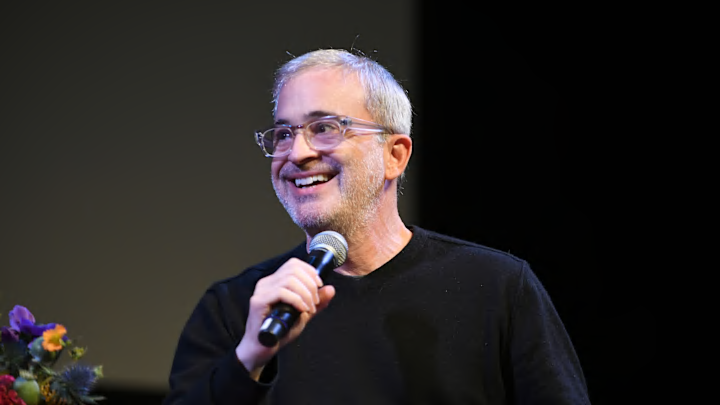Alex Kurtzman is trying to rewrite history. With the conclusion of Star Trek: Discovery recently, many are wondering why the first show back in 12 years failed to connect with fans. Launched right after Star Trek: Beyond failed to impress in theaters, Discovery was meant to be the first Star Trek series since Enterprise, a show that ended in 2005.
It was situated to be the selling point of CBS All-Access, a digital streaming service, which only had a percentage of subscribers compared to streaming competitors like Netflix. The show was set up to fail by not putting it on CBS proper, or giving the distribution rights to someone like The CW or Netflix. The CW had a history with Star Trek as it was once known as two separate channels, UPN and the WB. Voyager and Enterprise aired on UPN for over a decade, so moving the show to its successor made all the sense in the world.
But then the details came out; purple Klingons, set right before The Original Series, Spock would have a previously unintroduced "sister", and a darker tone than any Star Trek show had before. The series did everything it could to not only reject what came before but to stand on the back of Star Trek and declare loudly enough for everyone to know that what we enjoyed before wasn't good enough.
If it had been, Enterprise never would've been canceled. At least, that's how many, ourselves included, felt about the show's arrival. It wasn't a show meant for Star Trek fans. It was episodic in nature, with a continued narrative, that dramatically changed tons of canon and lore while alienating the fandom they were supposed to be making the show for.
It failed, and mightily so. It became the symbol of corporate overreach. Designed to deconstruct a beloved franchise uncertainly, just to make it "fresh" and "new". Instead of just making a show that was actually fresh and actually new.
It took too many cues from the films, which at this point, had fallen into disrepair thanks to JJ Abrams' mismanagement of the franchise, and tried to condense it into bite-sized versions. With bloated budgets and a look that didn't feel anything like Star Trek, the series failed to make an impact for years. It wasn't until shows like Strange New Worlds and Prodigy popped up that new (and old) fans started paying attention. An influx, you could argue, rose the platforms of Discovery and the second show launched under Kurtzman, Picard.
We know all of that. For many of you, that was just us repeating the history of Star Trek; Discovery. For Kurtzman, however, it was as if none of that happened.
Instead, Kurtzman told the LA Times (via SlashFilms) as previously reported by our own Rachel Carrington, that the dark tone of the show was intended. That it was intended to hold a mirror that held "..itself up to the times, and we were in 2017."
Kurtzman then goes on to say;
"We saw the nation fracture hugely right after the election, and it's only gotten worse since then....interpreting that through science fiction."
Yet, even in 2017, that was a bad idea. The concepts that worked 30 years ago can't work anymore. The idea that you can hold anything up against the audience and not anger half the crowd just doesn't exist anymore. We are so inundated with news, bullying, and cruelty all the time thanks to 24-hour news cycles and social media, that a show that reflects that is only going to turn people away. Even those who agree with the likes of Kurtzman.
Now, more than ever, shows have to be optimistic. They have to showcase the best of what we can be as a society. Not only that but with how expensive production is these days, you can't just cater to a 10th of a percent of the audience. It's no longer brave to alienate the masses, it's downright detrimental. So when you do all you can to turn your product into a niche offering, that doesn't represent or feel like a series that has nearly 60 years of history to its name, you're going to get blowback. People aren't going to be as interested.
No one should be surprised about that.
Moreover, the show failed, not because of an election or the divisiveness of an audience, but because the showrunners and producers of the show deliberately made a series that felt exclusionary. Even though the effort was to be inclusionary.
It succeeded in getting under-represented groups more screen time than ever before with Star Trek. Yet, the greater changes to the show, aside from the casting, were what held it back ultimately.
Kurtzman made the show feel like a "modern" sci-fi show, and not like a beloved franchise. A mistake rectified by Strange New Worlds.
Is Discovery bad? That's entirely up to you to decide. What will be said, however, is if you get the best pizza of your life, truly the best, but you ordered a steak, does it matter? It's not what you ordered. Fans came to Discovery for Star Trek and got something that wanted to be anything other than Star Trek.
So yeah, fans were pretty miffed about that.
